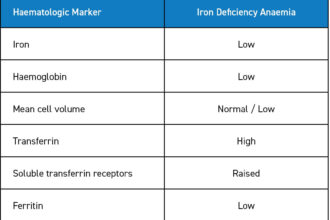Uncovering the Relationship Between Oral Function and Lifestyle-Related Diseases
The decline in oral function can result in poor diet balance, affecting daily physical activities in older adults. However, its association with overall health remains unknown. To address this, researchers from Japan investigated the association between oral function and blood test results in older adults. The findings revealed that adults with blood test results outside the normal range had low oral function, indicating that poor oral health may increase the risk of developing lifestyle-related diseases.
The term ‘oral health’ refers to the health of the mouth, teeth, gums, and other related structures, and it is closely linked with our well-being and quality of life. Recently, there has been a lot of interest in understanding how oral health is linked to and influences our overall health. For example, it was found that gum disease may be associated with various diseases such as diabetes and kidney disease. Poor oral health can also affect a person’s diet, which further increases a person’s risk of developing lifestyle-related diseases such as diabetes and heart disease.
Now, in a new study published online in the Journal of Oral Rehabilitation on April 17, 2025, a team of researchers led by Professor and Chairman Mitsuyoshi Yoshida and his colleagues from the Department of Dentistry and Oral-Maxillofacial Surgery, School of Medicine, Fujita Health University, Japan, have examined the association between oral health and different lifestyle-related diseases. This study was conducted in cooperation with Fujita Health University International Medical Center, with Director Hitomi Sasaki.
“Our main aim was to investigate the link between oral health and blood test results for glucose metabolism, lipid levels, and kidney function,” says Prof. Yoshida.
In this study, the researchers examined 118 individuals aged 50 or above who had undergone regular health check-ups. More specifically, they collected information from dental examinations in 2021, as well as annual physical examinations in 2021 and 2023. These individuals were subjected to seven different oral function tests to gauge their oral health—these included measurements of tongue coating index (TCI) (an indicator of oral hygiene), oral dryness, the number of remaining functional teeth, maximum tongue pressure, masticatory function, swallowing problem, and oral diadochokinesis (OD), a test that measures the speed and accuracy with which a person can repeat certain syllables.
In addition, the participants were divided into two groups based on whether their blood test results (including fasting blood glucose and cholesterol) were within the reference range or not. The resulting statistical analyses showed many interesting links between the oral function test results and blood test results.
Notably, the group with fasting blood glucose and HbA1c (which reflects the average blood sugar levels across 2−3 months) levels outside the reference range had significantly lower numbers of remaining teeth and OD values compared to the group with values within the reference range. Similarly, the group with cholesterol values outside the standard range had higher levels of TCI and lower OD values. The group with non-standard values of estimated glomerular filtration rate (a test that measures kidney function) also showed significant differences in some of the oral function tests. These findings indicate an important link between oral health and overall health, highlighting the need for implementing oral function tests during health check-ups for better health promotion.
“Overall, our results suggest that a decline in oral function can be a risk factor for lifestyle-related diseases. Thus, maintaining good oral health is the first step in maintaining overall health. We believe this study is an achievement that will pave the way for Japan’s vision of introducing and supporting universal dental health check-ups,” concludes Prof. Yoshida.







